
Translation, Maureen Freely said at a recent conference in Qatar, is a feminine, or feminized, act. The translator must remain faithful to the author's words; the contemporary translator is largely invisible; she (or he) is the helpmeet of the more powerful, more famous author.
Freely is best known for her work translating the Nobel Prize-winning Turkish author Orhan Pamuk. And it is clear, in reading Pamuk's dedication to the English version of his most recent novel, that he took pains to direct the translation. The dedication to The Museum of Innocence acknowledges not Freely, but instead others who helped perfect the English text: Sila Olcur, editor George Andreou, fellow author Kiran Desai.
But this power relationship is an unstable one. Sometimes, it is the translator who finds herself in the "masculine" position. Samia Mehrez, director of the American University in Cairo's Center for Translation Studies, says that, up until recently, it was usually translators who chose Arabic-language texts and pitched them to Western publishers. Translators thus stood between Arab authors and large, potentially well-paying audiences.
Mehrez said that, in this situation, with the author from a marginalized country and the translator from the dominant West, the translator sometimes felt at liberty to reshape the author's voice. The translator would perhaps attempt to make the story more comfortable, more accessible, or more palatable to a Western reader.
Mehrez said that she has heard of a number of instances where a Western translator has asked an Arab writer to change his text.
This has happened in a number of translator-writer relationships, Mehrez said. Indeed, translator Humphrey Davies remarked at a recent talk that he once altered an author's work, removing a word he felt some English-language readers might find offensive. The author agreed to the removal. But later, Davies said, he realized how angry the author really was. He put the word back in.
Some of these interactions may be detrimental to the work. Others may be helpful to an author. Denys Johnson-Davies concurs that, as translator of the widely acclaimed Distant View of a Minaret, he influenced Alifa Rifaat's style. Although the dimensions of power are impossible to ignore, it is possible that—as the author's most careful readers—translators might be able to teach the author something about her work.


It isn't always the case that the Western translator is more powerful than the Arab author. The authors of best-selling novels, such as Alaa el Aswany (The Yacoubian Building), Rajaa Alsanea (Girls of Riyadh), and Salwa al-Naimi (The Proof of Honey), have, like Pamuk, a greater opportunity to shape their foreign-language editions.
Twenty or thirty years ago, only a few Arab women writers were available in English. Translator and scholar Marilyn Booth says that, in the 1980s, she was particularly interested in translating women writers, who she felt were not well represented in English. Nawal El-Saadawi, Booth said, was left to stand in for many women authors. Booth felt there were stronger literary voices than El-Saadawi's. She added:
Booth translated a string of Arab female authors, including Hoda Barakat, Somaya Ramadan, Latifa Al-Zayyat, and El-Saadawi.
Now, Booth says, things have changed. Many Arab women writers are available in translation. Lately, Booth has heard the complaint that there is much greater Western interest in Arab women writers than in Arab men. Others have also made this point. In Peter Clark's "Arabic Literature Unveiled: Challenges of Translation," published in 2000, he said that he became interested in the work of Syrian author 'Abd al-Salam al-Ujaili, then in his seventies. Clark pitched a translation to an (unnamed) publisher, who said: "There are three things wrong with the idea. He's male. He's old. And he writes short stories. Can you find a young female novelist?"
Earlier this year, Syrian author Abeer Esber said in Qantara that Arab women writers, such as herself, are published more often than men. Often, she said, it's "for all the wrong reasons." Esber wrote about these reasons:
The popular desire for "taboo-breaking" fiction can work to the benefit of excellent female novelists, such as Hanan al-Shaykh, a literary author with a large following. It also can benefit other, less excellent writers. Youssef el-Bazzi, in an essay for Banipal 36 (Fall 2009), argued that Arab women writers rule Europe.
Arab women, al-Bazzi said, have much more power than Arab men. But what sort of power? One might expect from reading his essay that young and gifted Arab authors like Adania Shibli and Miral Tahawy are storming the literary scenes, breaking genre boundaries, elbowing their way up European bestseller charts. But this, like other powers, is one that exists within limits.


Most disagreements between publishers, authors, and translators take place behind closed doors. If the reading public hears anything about them, it's generally a faint echo of what really happened. Last year, Andrea Shelal-Esa wrote in the magazine Al Jadid of a female Muslim author who was "offered a million dollars if she would slant her debut novel against Islam" for U.S. audiences. The story is interesting—and might well be true—but the author and publisher are not named, nor are we given any details of this potential slanting.
The case is much different with Rajaa Alsanea's best-selling novel Girls of Riyadh. A disagreement arose between Alsanea, translator Marilyn Booth, and Penguin Books. Afterwards, Booth, who was clearly upset by the process, spoke widely about what had happened. She wrote a letter to the editor that appeared in the Times Literary Supplement. She wrote a much longer article for Translation Studies magazine. She talked about what had happened at the recent translation conference in Qatar.
Penguin and Rajaa Alsanea have not come out with their own version of events, nor did they respond to interview requests. But Booth tells of how the English version of Girls of Riyadh was taken out of her hands and re-written, erasing many political and gendered aspects of the novel.
Girls of Riyadh is a work that promises, on its opening page, to allow us into the Kingdom of Saudi Arabia's "most explosive scandals and noisiest, wildest all-night parties." The novel thus fits the "chick lit" mold, but it is also—Booth argues—a work of social critique. And because the work had the potential to create sympathy across the U.S.-Saudi Arabia divide, Booth made a conscious decision to "foreignize" her translation, to make it clear that readers were sympathizing with Saudi characters.
Translators face decisions—book to book, page to page—of whether to "foreignize" or "domesticize" a work. Domesticizing removes or alters those things that might seem strange or difficult to the English-language reader. Russian-English translator Constance Garnett has been accused of over-domesticizing Leo Tolstoy's books in setting them "in what feels like an English garden."
With Girls of Riyadh, Booth made an effort not to turn Saudi Arabia into an English garden. She wanted to highlight gender and cultural issues, as well as the narrator's shifts between standard Arabic, Saudi dialect, and English. She wanted to make the reader connect to a Saudi narrator across a cultural divide, and for the reader to feel this divide.
Booth wasn't wholly "foreignizing" the text. One way in which she domesticized Girls of Riyadh, she said, was by translating Allah as God. But this was another decision later reversed by the publisher and the author.
Booth said she wasn't translating with a particular audience in mind, but that neither does she translate in a vacuum. She is always aware of the political climate as she works, and of English readers' attitudes toward the Arab-writing world:
So, after trying both to complicate the text and to smooth it out, Booth handed in her version to the publisher. But—for reasons never clearly expressed to Booth—Alsanea rejected this work. With the publisher's support, Alsanea re-translated the book herself.
Booth argues that the book not only became de-foreignized—removing cultural and political references, poetry, and Arab idioms in favor of clichéd English language—but also de-gendered. Booth's opening "Ladies, Girls, and Gentlemen," which echoes the Arabic and highlights the key role of young women in the book, was smoothed by Alsanea to the familiar "Ladies and Gentlemen."
Perhaps here lies a legitimate conflict of interest: The publisher wants a book that a great mass of people will buy. This is likely to be something familiar: not too gendered, not too difficult. The author wants to be a best-seller (and, according to Alsanea's website, to win the Nobel Prize for Literature by 2015). The translator wants to create a text that is faithful to the original book and that communicates the incommunicable, leaving, in the words of theorist Gayatri Spivak, the "trace of the other."
Here the author's and the publishers' desires coincided—for a likeable, fun read—and they largely pushed Marilyn Booth out of the text.
In this case, Rajaa Alsanea managed to commandeer the masculine, authorial position. However, the situation can be quite different for Arab women writers who don't write about sex or veils or shopping or scandals.


Humphrey Davies, who has translated almost exclusively male authors, tells of an Arab woman author who he once translated. He finished the English version of the work and brought the text to the publisher. However, the author's voice did not sound how the publisher had expected an Arab woman would sound, and so the publisher requested a number of changes. Davies and the author were unwilling to make these revisions, and the translation has not (yet) been published.
Samia Mehrez concedes that this happens, but feels the winds are changing:
In part, Mehrez believes that we are moving away from a focus on sexy, taboo-busting fiction because of a recently established literary prize: the International Prize for Arabic Fiction or "Arabic Booker." The Arabic Booker takes some power away from translators, Mehrez said, as publishers now can create their own lists of worthwhile literary novels in Arabic.
And yet, the Arabic Booker has thus far not been much of a blessing for Arab women writers. In the first three years of its operation, only three women have made the shortlist. The first year (2008) it was May Menassa, whose shortlisted novel is not yet available in English. The second year it was Inaam Kachaci, whose The American Granddaughter will be out from Bloomsbury-Qatar later this summer. This year, it was Mansoura Ez Eldin, for her Beyond Paradise.
A few of the novels shortlisted for the Arabic Booker have made their way into English: The Scents of Marie-Claire, by Habib Selmi and Hunger, by Mohamed al-Bisatie are two of them. But many more have not. So perhaps, in the end, it will be in the difficult, less-fashionable world of literary fiction that Arab men and Arab women will enjoy a sort of equality.
Of course, not all of this translation has been equally good. But while the world of Arabic letters has a long and rich history—from Al Jahiz to 1,001 Nights to Leyla and Majnun to Ibn Battouta to Taha Hussein to present—the serious translation of Arabic literature into English began only a half century ago with pioneers like Denys Johnson-Davies and Salma Khadra Jayussi. Surely, in the years to come, more will come of this burgeoning cultural exchange.


M. Lynx Qualey lives in Cairo, Egypt, where she writes about contemporary Arabic literature and teaches
creative writing. She blogs at http://arablit.wordpress.com.
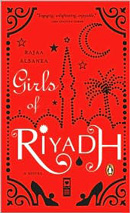
Girls of Riyadh by Rajaa Alsanea (Saudi Arabia)
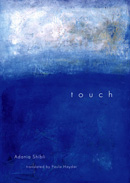
Touch by Adania Shibli (Palestine)
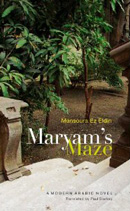
Maryam's Maze by Mansoura Ez-Eldin (Egypt)
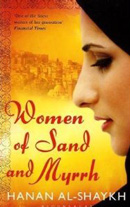
i>Women of Sand and Myrrh by Hanan Al-Shaykh (Lebanon)
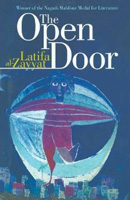
The Open Door by Latifa al Zayyat (Egypt)
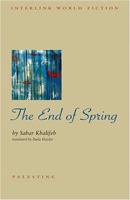
The End of Spring by Sahar Khalifeh (Palestine)
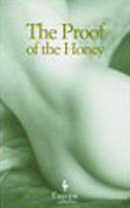
The Proof of Honey by Salwa Al-Neimi (Syria)
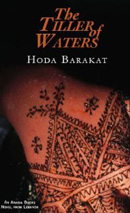
The Tiller of Waters by Hoda Barakat (Lebanon)
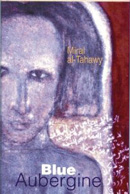
Blue Aubergine by Miral al Tahawy (Egypt)
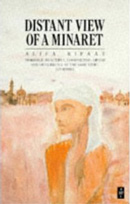
Distant View of a Minaret and Other Stories by Alifa Rifaat (Egypt)
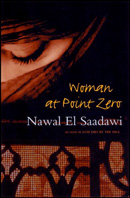
Woman at Point Zero by Nawal El Saadawi (Egypt)
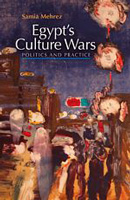
Egypt's Culture Wars by Samia Mehrez (Egypt)
